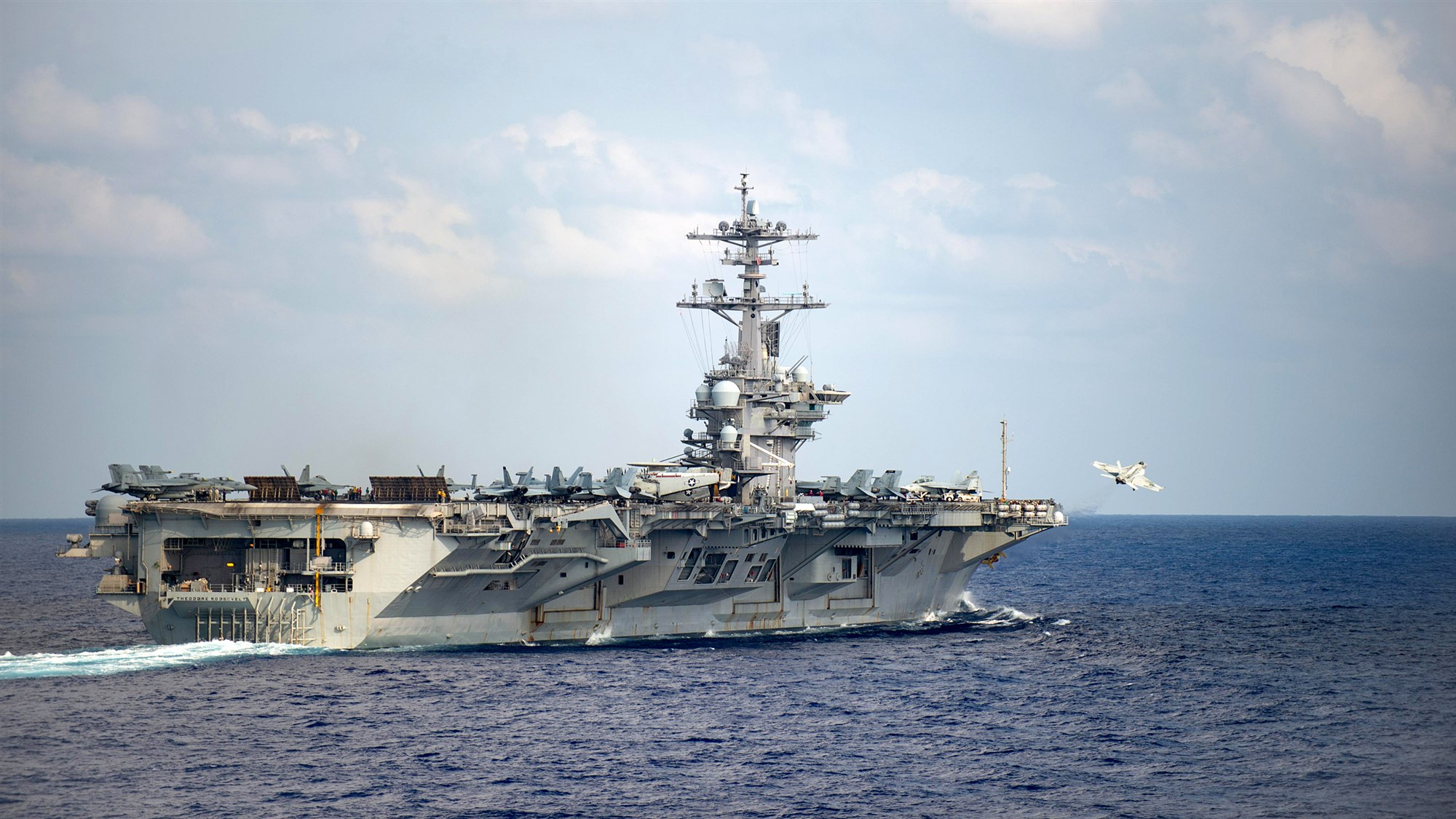On March 30, 2020, the media pounced on a leaked, controversial letter of a U.S. Navy Captain commanding the USS Theodore Roosevelt, a Nimitz-class nuclear powered aircraft carrier and strategic national asset. A week later, on April 6, the Acting Secretary of the Navy, having fired the Captain, gets on the ship’s intercom system to address the crew, calls the fired Captain “stupid,” and complains about harsh social media backlash to his ill-advised decision. Who should be relieved of duty? This incident raises important questions related to civil-military balance-of-power relationships.
The controversy over the “strongly worded letter” centered on an outbreak of COVID-19 on the ship, the letter being sent on an unclassified email network to the chain of command and carbon-copied to multiple recipients outside of the chain of command, and revealing detailed mission readiness challenges related to the ship. Captain Brett Crozier is now the former commander of the USS Theodore Roosevelt, relieved of command by the Acting Secretary of the Navy, Thomas Modly, a political appointee.
Acting Secretary Modly, according to a Department of the Navy official statement, personally directed Crozier’s dismissal because of a loss of confidence is his ability to lead the warship. Crozier “allowed the complexity of his challenge” to “overwhelm his ability to act professionally,” Modly stated. The dismissal was not about retribution for the leaked letter, but about confidence in Crozier’s ability to continue to command. Modly’s narrative explaining his action describes extensive consultations with Crozier and Crozier’s chain of command.
Civilian leaders will often make symbolic high-level personnel decisions to demonstrate civilian control of the military. The Secretary of Defense, Mark Esper, and the Chairman of the Joint Chiefs of Staff, General Mark Milley, reportedly recommended allowing an investigation to determine facts and an informed decision. The Chief of Naval Operations, Admiral Michael Gilday, counseled Modly to leave the decision to the military. Modly acted against this advice. In this case, The Washington Post reports that Modly took action for political reasons, confiding that the President, referring to Crozier, “wants him fired.”
There is no question that Modly acted within his authority. However, as a political appointee with very modest, mid-level managerial experience, the Acting Secretary, created another problem set. The decision now appears political in nature. This perception is supported by his own description of the matter. News headlines and editorials now read that the decision to fire Crozier came from the President because it may have made the administration appear weak and not in control.
Regardless of whether Modly acted independently or at the behest of the President, he disempowered and marginalized four senior Admirals in Crozier’s chain of command. Regardless of whether Modly’s decision was correct, military elites are contemptuous of civilians that arrogantly insert themselves in internal administrative and personnel matters. Crozier is no longer in command and Modly’saction have made matters worse.
Concurrent questions remain. What inspired an apparent rising star in the Navy to act in a manner that signaled desperation? Why was Crozier’s immediate commander, Rear Admiral Stuart Baker, unaware of Crozier’s letter before it was sent. Clearly a military investigation is in order.
In the end, Modly appears to have acted against the best advice of his most senior military leaders for political reasons. If this is the case, Modlyweakened his position inside the Navy. He did not strengthen it. His current rants continue to undermine his position. He made a symbolic gesture to intimate civilian control for political advantage. No real benefit came from his action. The moral of the story is that wrong does not excuse wrong. Iniuria non excusat iniuriam…
Colonel Todd A. Schmidt, Ph.D., is a U.S. Army Goodpaster Scholar and SAMS alumni. The editorial comments, opinions, and bias are his own, based on research and analysis related to doctoral studies on military elite influence on national security.
Photo credit: Petty Officer 3rd Class Nicholas V. Huynh / U.S. Navy
Original article updated at 10pm (AEST) 07 April 2020.

